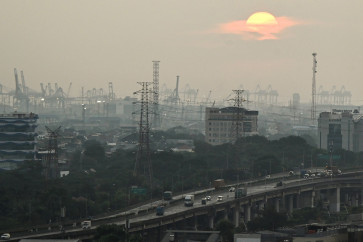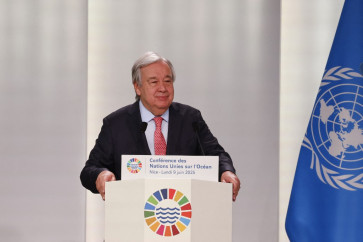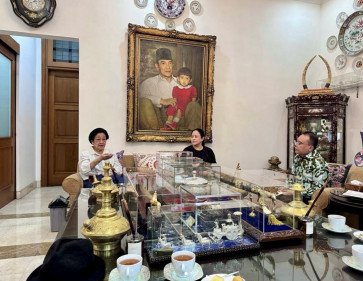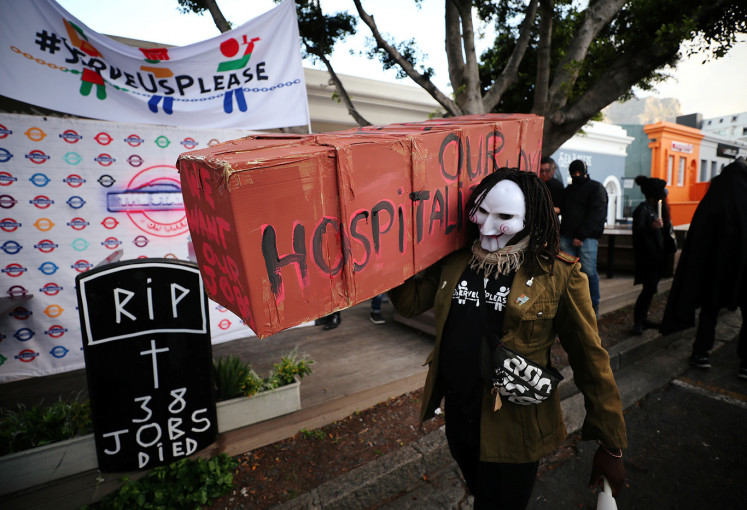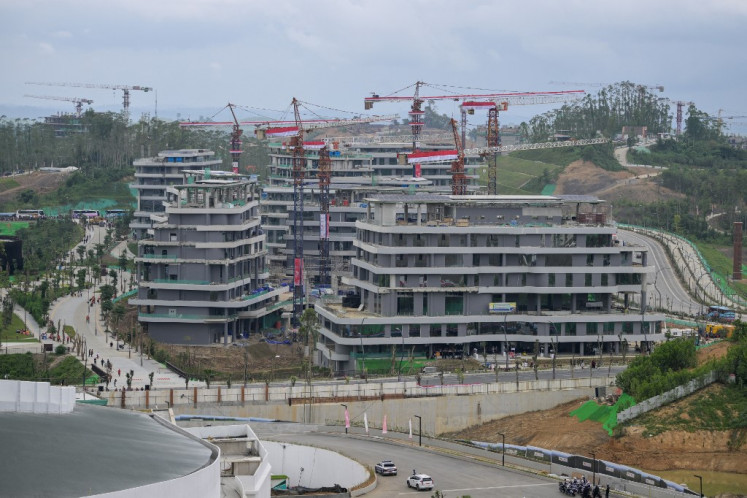Calling fathers back to the family
Some have started campaigning for fathers to return home to the family and take part in raising their children, something these activists say is not only good for kids but also for the country’s future
Change text size
Gift Premium Articles
to Anyone

S
ome have started campaigning for fathers to return home to the family and take part in raising their children, something these activists say is not only good for kids but also for the country’s future.
A three-year study in 33 provinces in Indonesia between 2008 and 2010 crowned Indonesia one of the most “fatherless” countries in the world, not because of the huge number of orphans but due to men’s ignorance about raising children.
Parenting expert Elly Rusman Musa, who was involved in the research, said that after interviewing couples their results suggested fathers lagged behind in parenting.
“[Couples] believe the fathers’ task is to work and earn money while mothers take care of the children,” she said.
That understanding stems from Indonesia’s strong patriarchal values, Elly said.
The lack of public knowledge about the importance of a father figure in parenting has also worsened the problem.
Society is still clueless about the issue despite research in and outside the country since the 1980s that has presented the benefits of a father’s involvement in his children’s developmental outcomes.
Research from 1987 to 2005 consistently showed a positive correlation between a father’s involvement and his children’s overall social competence, social initiative, social maturity and capacity to relate to others.
The studies also found children of involved fathers have higher grades, demonstrate a greater tolerance for stress and frustration, have superior problem-solving and adaptive skills and are more playful, resourceful, skillful and attentive when presented with a problem.
With that long list of benefits, few people know about the positive outcomes. Elly and a group of friends in the late 1990s initiated a fathering campaign to inform the public about the importance of their involvement in parenting.
But it was not until 2009 that the campaign reached out to fathers directly with the establishment of Sahabat Ayah (Fathers’ Best Friends), a support group for career fathers eager to take part in raising their children.
The “founding father” of Sahabat Ayah is Irwan Rinaldi, who, together with Elly, has pioneered the fathering campaign in Indonesia.
The group has launched a nationwide operation to inform fathers across the country about their important role in the family.
Irwan found the problem of fathering in Indonesia was far more crucial and urgent than research data and results show.
The man, who has dedicated his life to parenting, believes the fate of the nation depends on fathers because they are the ones who build the characters of the next generation.
“A country becomes strong because of fathers. Fathers are the ones who form the children’s characters. Without fathering, our country will weaken,” he said.
According to Irwan, father figures are important to children to help them define themselves.
A father’s absence, he added, will make it difficult for children to have strong character.
“This explains why our young generation is weak and easily influenced by drugs or porn,” Irwan said.
Irwan and his friends in Sahabat Ayah have been striving to return fathers to the family, knowing that their presence is not only important to children but for the country’s future.
The group’s current activities include the distribution of flyers containing tips for being a good father, as well as organizing fathers’ communities across Indonesia.
Irwan’s partner at Sahabat Ayah, Bendri Jaisyurrahman, said the group printed 2,000 flyers every week to be distributed across the country and even abroad.
“We also sent copies to Indonesian fathers living in Australia, the UK, the Netherlands and Canada,” Bendri said.
Sahabat Ayah has also supported at least 200 fathers’ communities, whose member profiles vary from the rich who work in lavish offices to the poor who work as ojek (motorcycle taxi) drivers or scavengers.
“[Fathering] is a universal problem,” said Irwan, who believes fathers from all economic levels deal with the same problems when it comes to parenting.
“We find similar problems of imbalances in parenting: the mothers are concerned but the fathers don’t. The male paradigm is to find money, to work and that’s it,” Irwan said.
Sahabat Ayah, Irwan said, was trying to strike a balance between the roles of fathers and mothers in raising their children.
In other words, fathering is not only important to children but also to mothers.
Career woman Yully Purwanti, 44, realizes how important it is to have a life partner who is also a hands-on father.
“If fathering can be implemented, duo parenting will not only bring positive benefits to children but also reduce working mothers’ daily tasks,” the mother of two said.
Elly thinks fathering is required in the life of a modern family, where most mothers are also career women.
With fathers absent and mothers spending most of their time outside the house, the parenting expert predicts the worst could happen, with children facing not only fatherlessness, but motherlessness or even parentlessness.
This may put the future of the country in double jeopardy, she said, looking at the impact of a fatherless society on the current generation.
Elly said the government has not paid that much attention to the issue, considering the family a personal matter and not as strategic as politics or societal problems.
But, given the role of the family in shaping the country’s next generation, Elly is calling for a policy change and coordinated task force on the family, especially on the issue of fathering because the return of fathers to their families is something that will not only be cheered on by children and mothers, but also by a government in need of young people of strong character to strive for the country.
— Photos
courtesy of Sahabat Ayah

